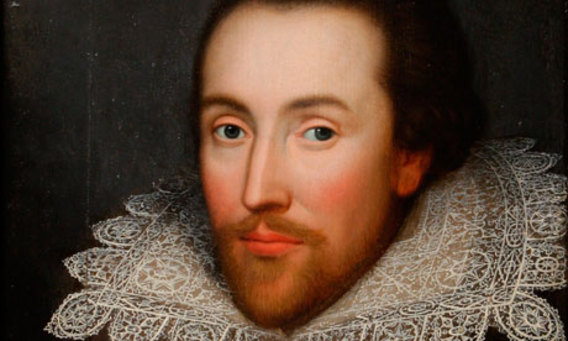Not more than 10 days ago, Jonathan Crow highlighted for you Adam Bertocci’s Two Gentlemen of Lebowski, a book that asks you to suspend disbelief and imagine, What if…William Shakespeare had written The Big Lebowski?
Now comes news that makes the collision of the Bard’s and Lebowski’s worlds somewhat more plausible. According to The Telegraph, “South African scientists have discovered that 400-year-old tobacco pipes excavated from the garden of William Shakespeare contained cannabis, suggesting the playwright might have written some of his famous works while high.” Lebowski could relate.
If you want to get into the specifics, you can read the précis published in The South African Journal of Science called “Shakespeare, plants, and chemical analysis of early
17th century clay ‘tobacco’ pipes from Europe.” It details how a team, led by anthropologist Francis Thackeray at the University of the Witwatersrand in Johannesburg, used a “sophisticated technique called gas chromatography mass spectrometry (GCMS)” to analyze “pipes [that] had been excavated from the garden of William Shakespeare.” The results of their study? They “indicated Cannabis in eight samples, nicotine (from tobacco leaves of the kind associated with Raleigh) in at least one sample, and (in two samples) definite evidence for Peruvian cocaine from coca leaves of the kind which Thackeray et al. associated with Drake who had himself been to Peru before 1597.”
Thackeray also finds literary support for the idea that Shakespeare had a taste for Cannabis, noting that in “Sonnet 76 Shakespeare writes about ‘invention in a noted weed’. This can be interpreted to mean that Shakespeare was willing to use ‘weed’ … for creative writing (‘invention’).” The précis goes on to add: “In the same sonnet it appears that [Shakespeare] would prefer not to be associated with ‘compounds strange’, which can be interpreted, at least potentially, to mean ’strange drugs’ (possibly cocaine).” You can read Sonnet 76 in full here:
Why is my verse so barren of new pride,
So far from variation or quick change?
Why with the time do I not glance aside
To new-found methods and to compounds strange?
Why write I still all one, ever the same,
And keep invention in a noted weed,
That every word doth almost tell my name,
Showing their birth and where they did proceed?
O, know, sweet love, I always write of you,
And you and love are still my argument;
So all my best is dressing old words new,
Spending again what is already spent:
For as the sun is daily new and old,
So is my love still telling what is told.
Related Content:
Free Online Shakespeare Courses: Primers on the Bard from Oxford, Harvard, Berkeley & More
Read All of Shakespeare’s Plays Free Online, Courtesy of the Folger Shakespeare Library
Take a Virtual Tour of Shakespeare’s Globe Theatre



Hmmmm… If there is no proof who Shakespeare really was, how could this truly be his garden?
The précis of professor Thackeray’s article (which Open Culture cites approvingly) says that Shakespeare “would prefer NOT [my caps] to be associated with ‘compounds strange’ ”. But this is precisely backwards. The whole point of the poem (which, I would venture to say, has absolutely nothing to do with cannabis or cocaine) is that he would LOVE to be able to come up with the fashionable ‘new-found methods’ of expressing his love, but he can’t. “Compounds strange’ are compounds of trendy, newfangled LANGUAGE, not compounds cooked up in chemical labs. The ‘noted weed’ line is admittedly somewhat obscure, but near the bottom of the poem he laments that all his best efforts result merely in “dressing old words new”, and since ‘weed’ or weeds meant clothing in his day, his point in the ‘noted weed’ line is surely that his much-to-be-desired ‘invention’ always winds up getting kept buttoned up inside his ‘noted’ (i.e., his familiar and immediately recognizable) style.
He doesn’t mean a word of it, of course, since what he’s really doing is thumbing his nose at the notion that a powerful, honest poem like this one needs some kind of flashy new way of getting its feeling across. If irony is dying, it’s dying because we are losing our ability to pick up on it, and Open Culture isn’t doing us any favours by (a) getting Shakespeare wrong and (b) obscuring him in a cloud of marijuana smoke.
What if the Open Culture piece was tongue in cheek all along? Where does that leave Professor Dowden’s solemn lecture on the demise of irony?